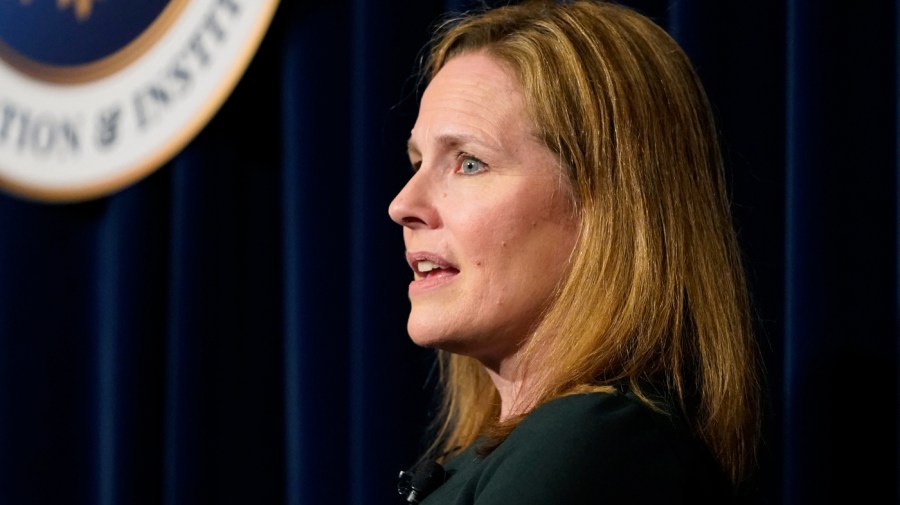Imagine a courtroom where judges can accept gifts from those bringing cases before them — where the judges themselves decide whether or not they have a conflict of interest in any given case, where transparency is basically non-existent, and where there is no accountability even for the most egregious ethics violations.
Unfortunately, we don’t have to use our imagination. This is the current reality of our U.S. Supreme Court.
As the Supreme Court takes on new cases every day involving President Trump’s unprecedented law-breaking and power grabs, it is more important than ever that Americans are able to trust the highest court in the land to judge cases fairly and impartially. But right now only 44 percent of Americans profess at least moderate trust in the institution, according to the nonpartisan Annenberg Public Policy Center.
Sadly, the Supreme Court’s current opaque and inconsistent approach to judicial recusals undermines this essential trust.
The court has been embroiled in one ethics scandal after another for years. Many of them have centered around the justices’ refusal to recuse themselves from cases where there are clear conflicts of interest. For example, Justice Clarence Thomas has ruled on cases directly connected to his wife’s political activities and refused to recuse from matters involving his benefactor Harlan Crow, a billionaire who provided Thomas with millions in luxury vacations and private school tuition for a relative. Crow even purchased Thomas’s mother’s home, before making aesthetic renovations to it while she was still residing there.
Justice Neil Gorsuch only recused himself from a recent case involving billionaire oil and gas magnate Philip Anschutz after my organization and members of Congress highlighted the problematic relationship between the two. We still don’t know all the details of their connection.
Those are just two examples, and there are many, many more.
These aren’t isolated incidents; rather, they are symptoms of a systemic failure to address corruption, or the appearance of it, by the justices. Unlike every other federal court, the Supreme Court operates without mandatory ethics rules. The justices alone decide if their conflicts merit recusal, with no obligation to explain their reasoning. This self-policing system creates an accountability void that would be unacceptable in any other branch of government.
However, a recent decision by a member of the court’s conservative supermajority shows us that it doesn’t have to be this way.
Justice Amy Coney Barrett bucked this trend with her recent recusal from Oklahoma Statewide Charter School Board v. Drummond. Although Barrett provided no public explanation, it’s plausible if not likely that her decision stemmed from her close ties to Notre Dame’s Religious Liberty Clinic and personal friendship with one of the case’s legal adviser, Notre Dame law Professor and Federalist Society Director Nicole Stelle Garnett.
This choice reflects the longstanding principle, mostly abandoned by the Roberts Supreme Court, that judges should step aside when personal relationships might bias them, or even create the appearance of impropriety.
Anyone who cares about judicial ethics, regardless of ideology or perspective on individual Supreme Court decisions, should embrace what could be called the “Barrett Standard” — the commonsense principle that judges at all levels should recuse themselves from cases involving personal or financial connections.
This standard isn’t radical; it’s what Americans reasonably expect and what lower court judges are already bound to follow. And since it’s clear that Chief Justice John Roberts will not establish an enforceable standard — he has so far offered only a non-binding code with vague guidelines — and the justices won’t accept one on their own, it’s time for Congress to impose concrete reforms.
First, Congress should establish clear, enforceable recusal rules for Supreme Court justices that match or exceed the standards applied to lower federal judges. It is not unreasonable to believe that the ethical standards for the highest court in the land should be higher, not lower, than the courts beneath it.
Second, justices must be required to publicly disclose potential conflicts and explain their recusal decisions. The current system, where justices can silently participate in cases despite obvious conflicts, leaves Americans in the dark and makes meaningful accountability impossible.
Third, Congress should establish an independent review of recusal decisions rather than allowing justices to judge their own impartiality. Even Chief Justice Roberts’s milquetoast code acknowledges that avoiding “the appearance of impropriety” matters, but it provides no mechanism to enforce this principle. The requirements and process around recusals should be made clear, and it should be binding — not optional.
The Supreme Court Ethics, Recusal, and Transparency Act, proposed in the last Congress by Sen. Sheldon Whitehouse (D-R.I.) and Rep. Hank Johnson (D-Ga.), would go a long way toward accomplishing these three things, bringing much-needed basic transparency and accountability standards to the Supreme Court.
But Roberts should not wait for Congress; he should act with urgency to implement these reforms to restore trust in his court.
Transparency in government isn’t just good policy — it’s a fundamental democratic value. When institutions become less transparent, it signals democratic backsliding. As we witness concerning trends across other branches of government, the Supreme Court should rise above partisan politics and demonstrate a renewed commitment to ethical clarity.
Barrett’s recent recusal provides a template for what responsible judicial ethics should look like. Now, her colleagues must consistently adopt this standard or face the consequences of continued public distrust. The court’s legitimacy — and ultimately, our nation’s commitment to the rule of law — depends on it.
Caroline Ciccone is the president of Accountable.US, a nonpartisan watchdog organization that
shines a light on the special interests that wield unchecked power in Washington and beyond.
Copyright 2025 Nexstar Media, Inc. All rights reserved. This material may not be published, broadcast, rewritten, or redistributed.
For the latest news, weather, sports, and streaming video, head to The Hill.




